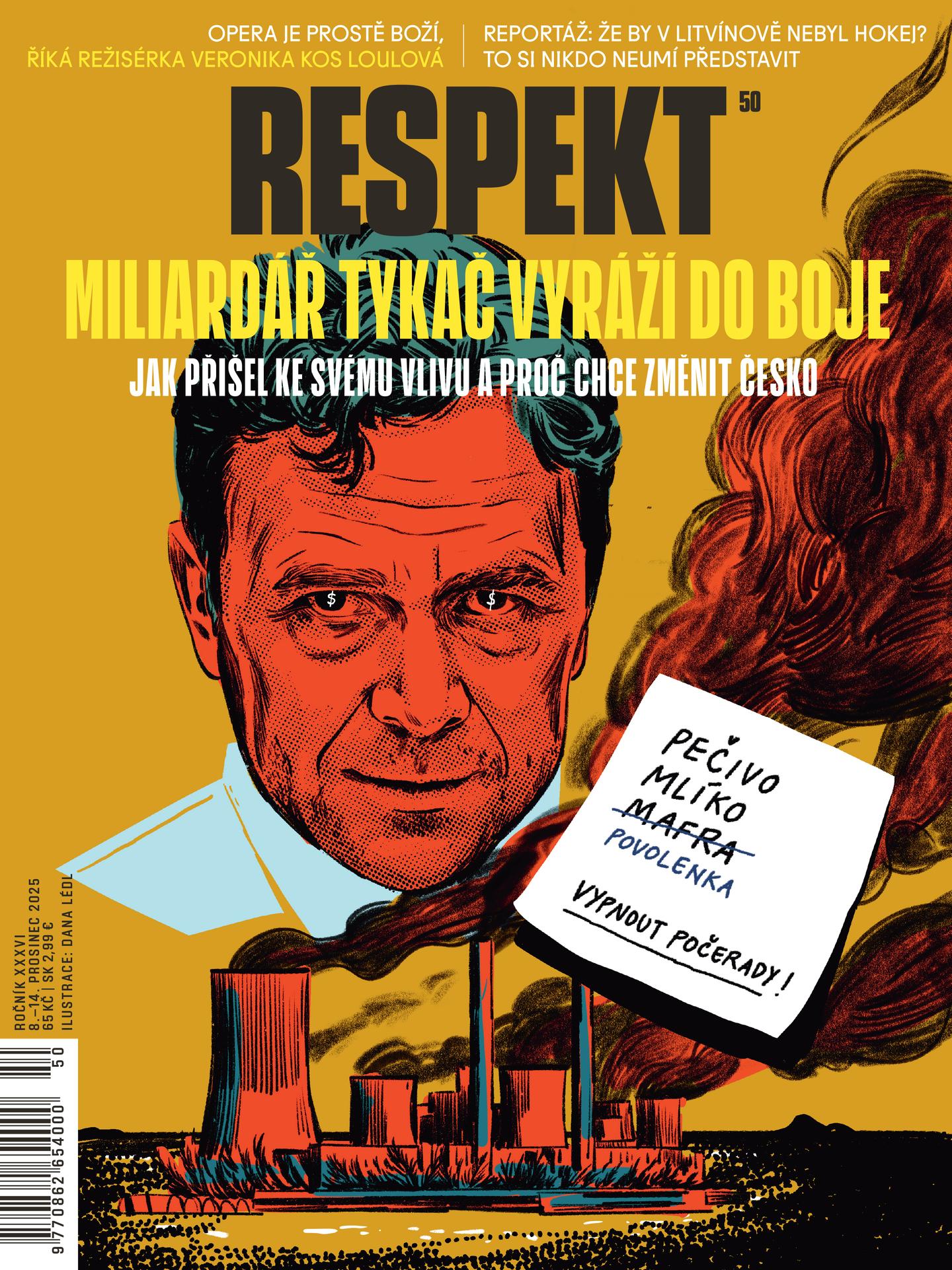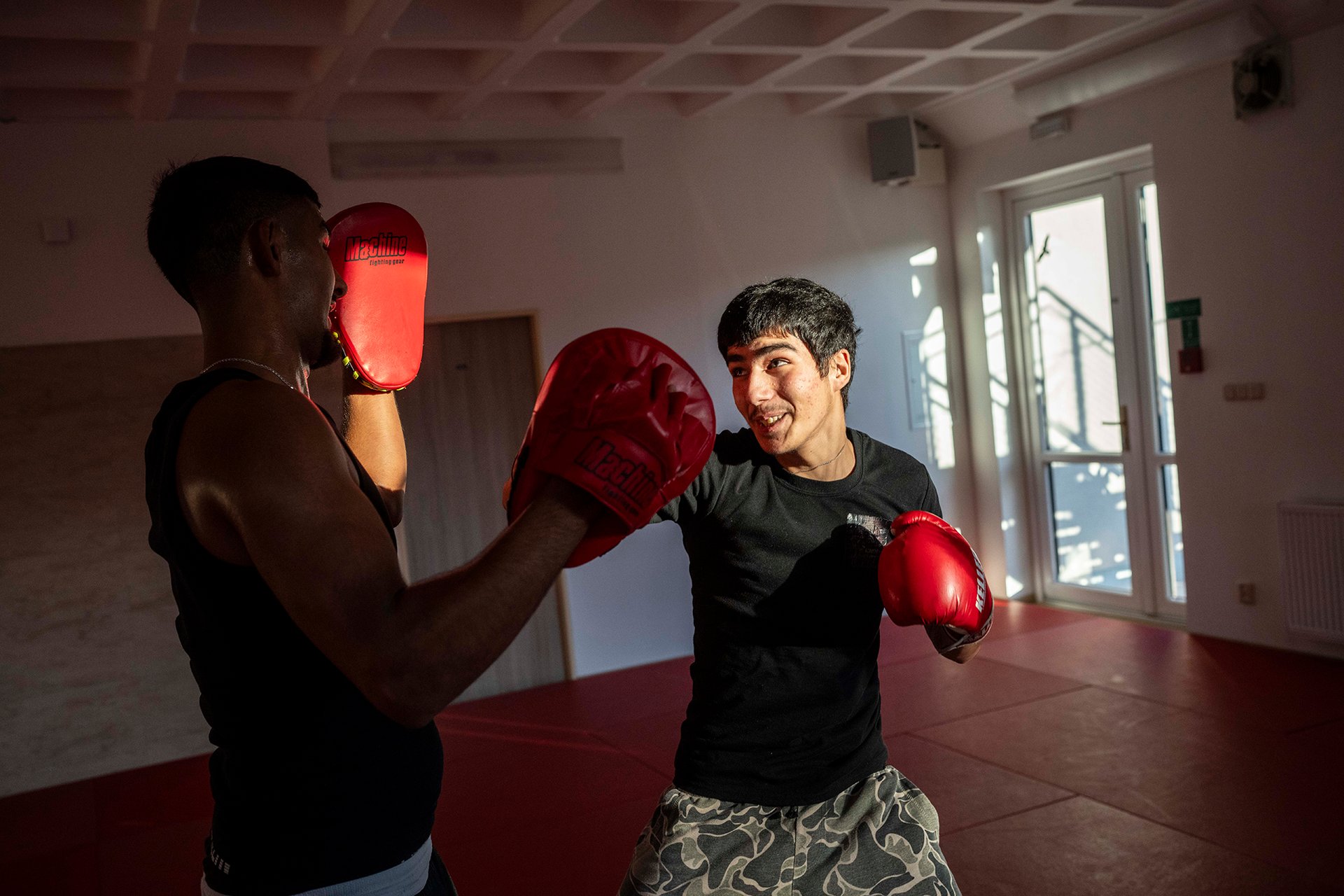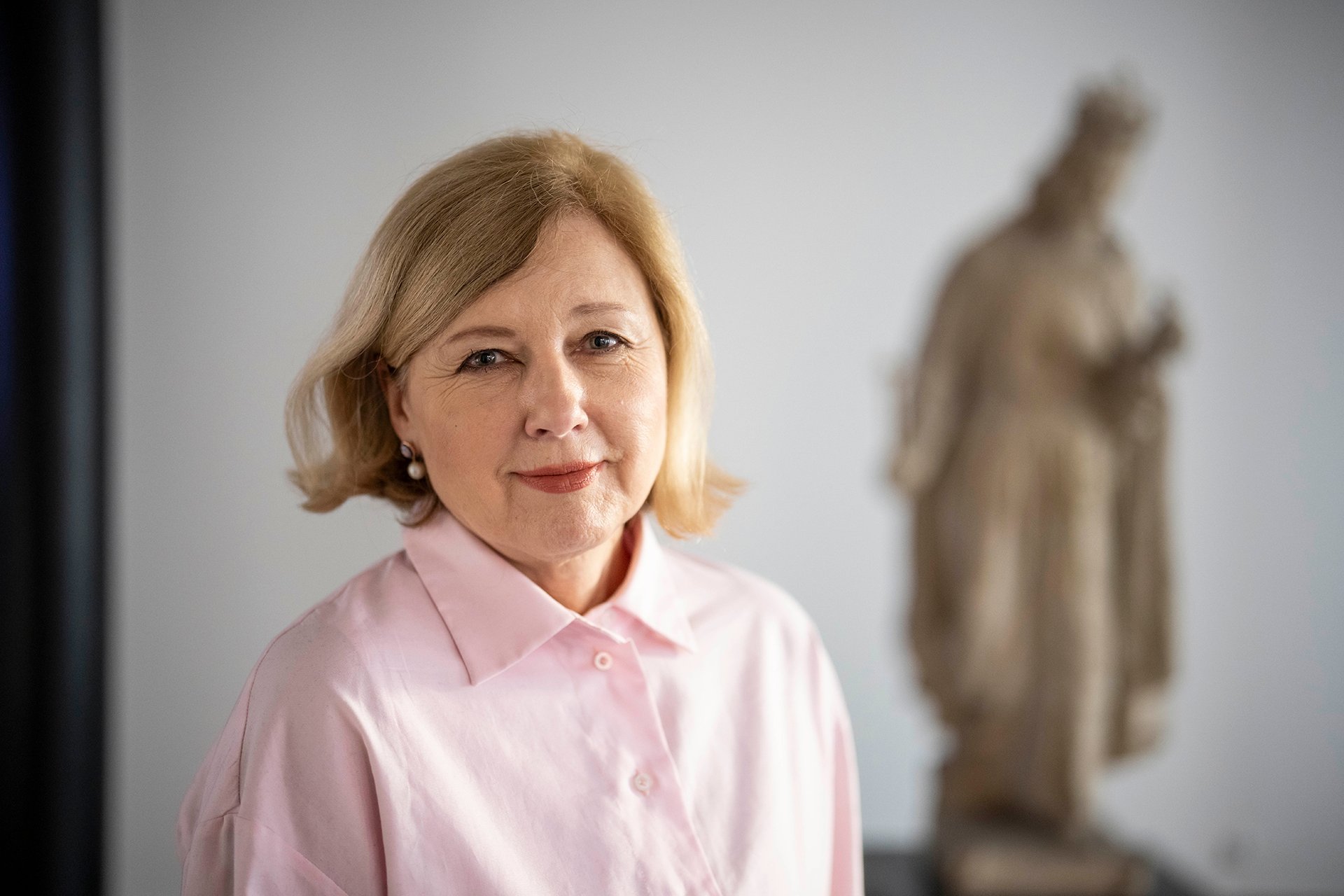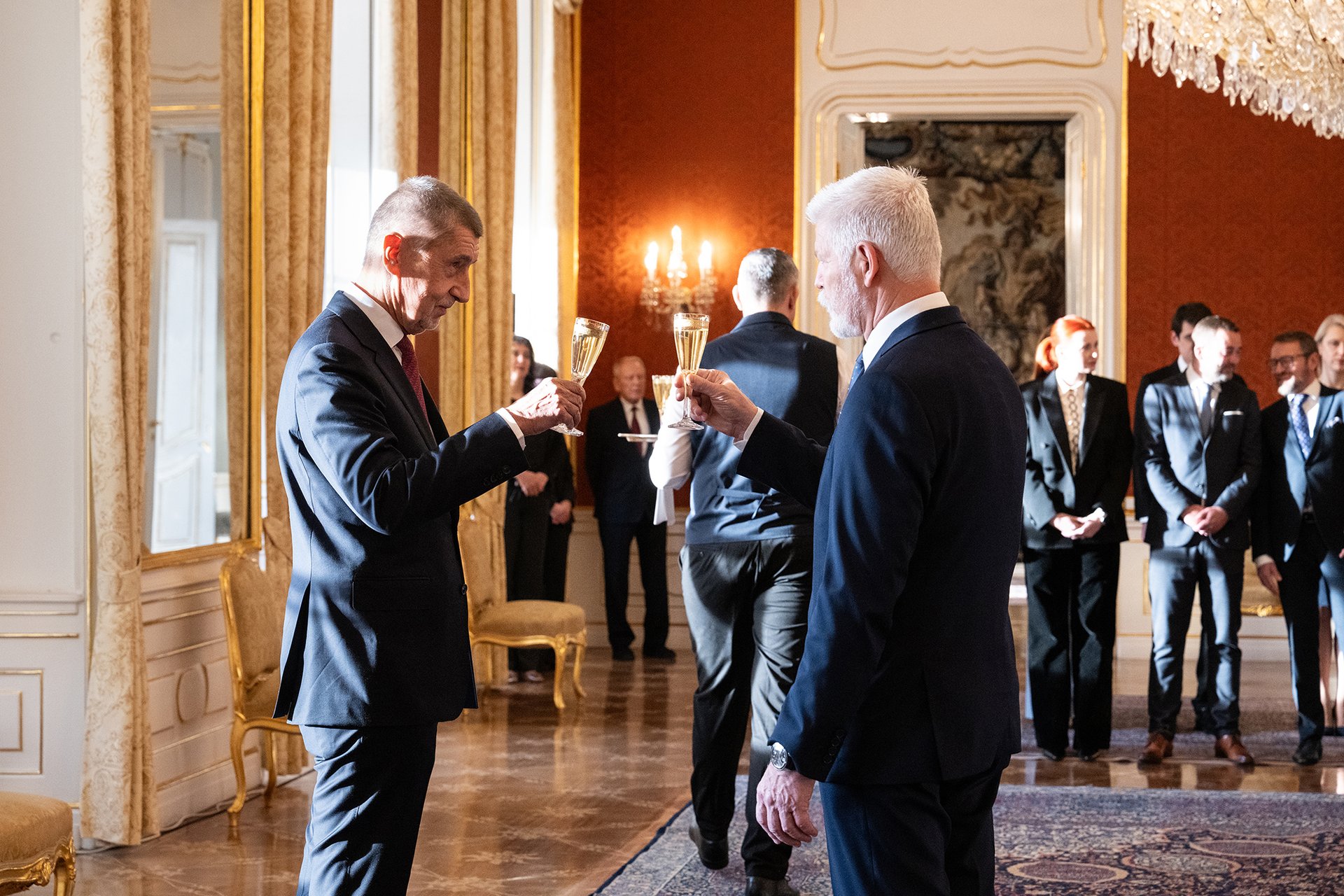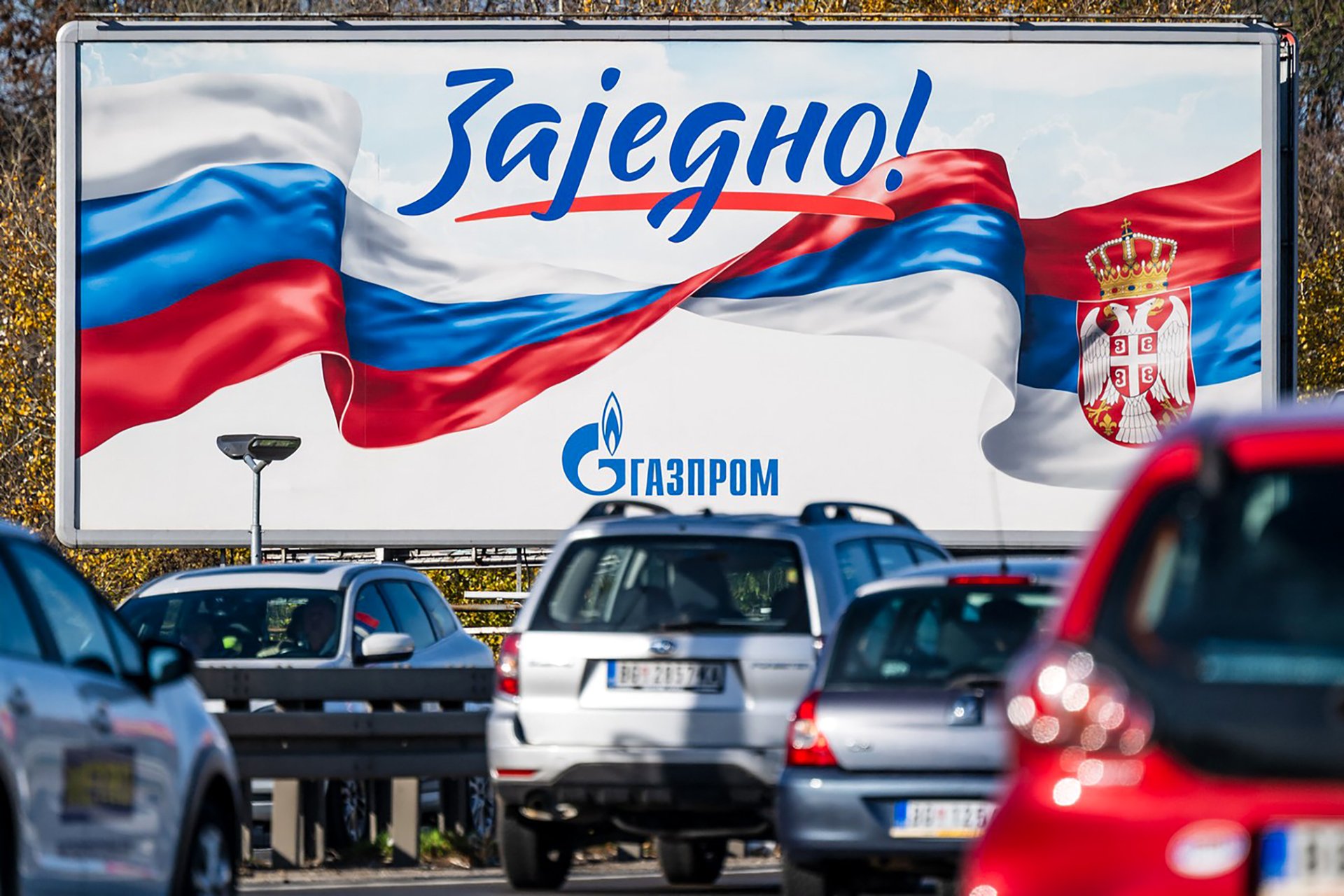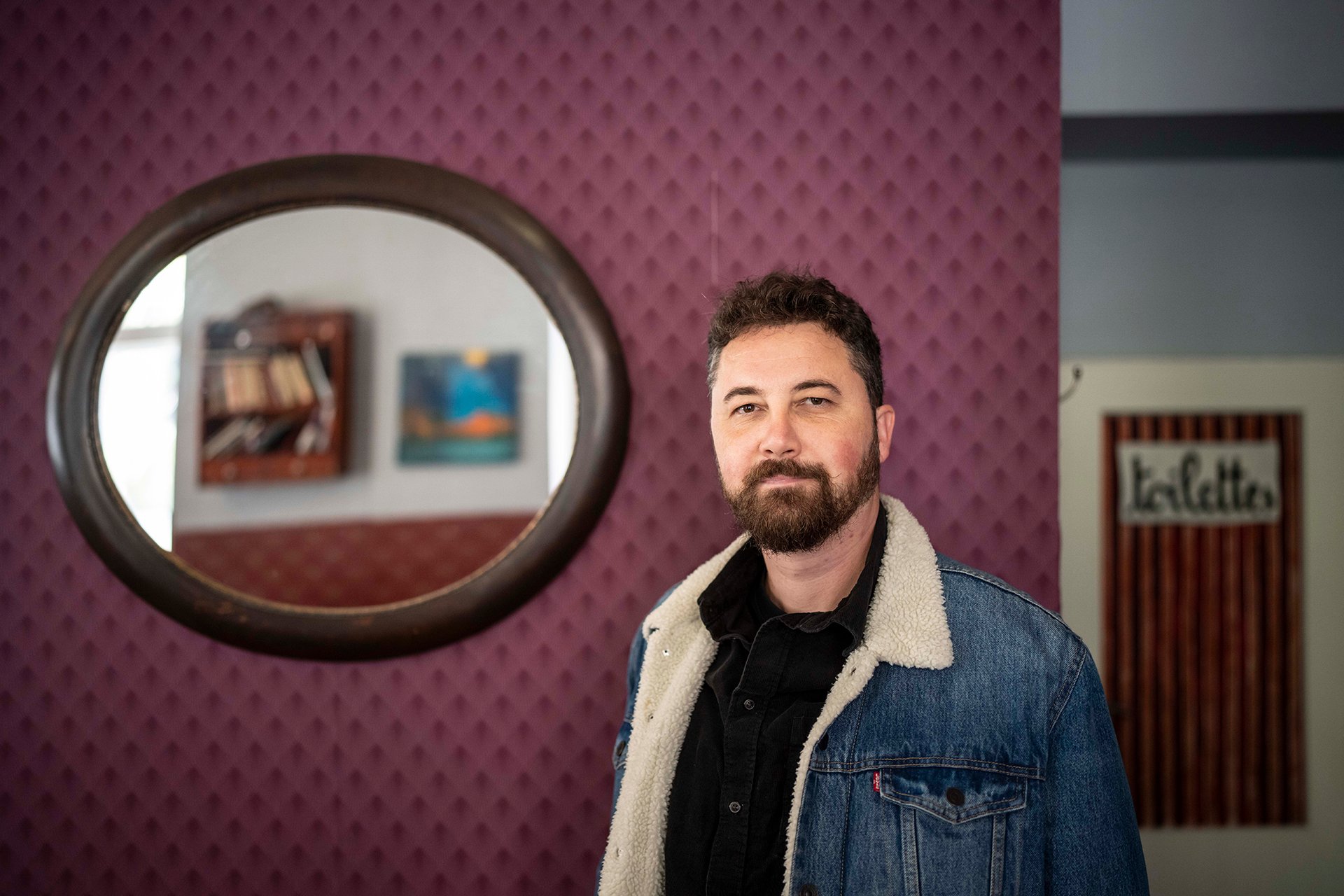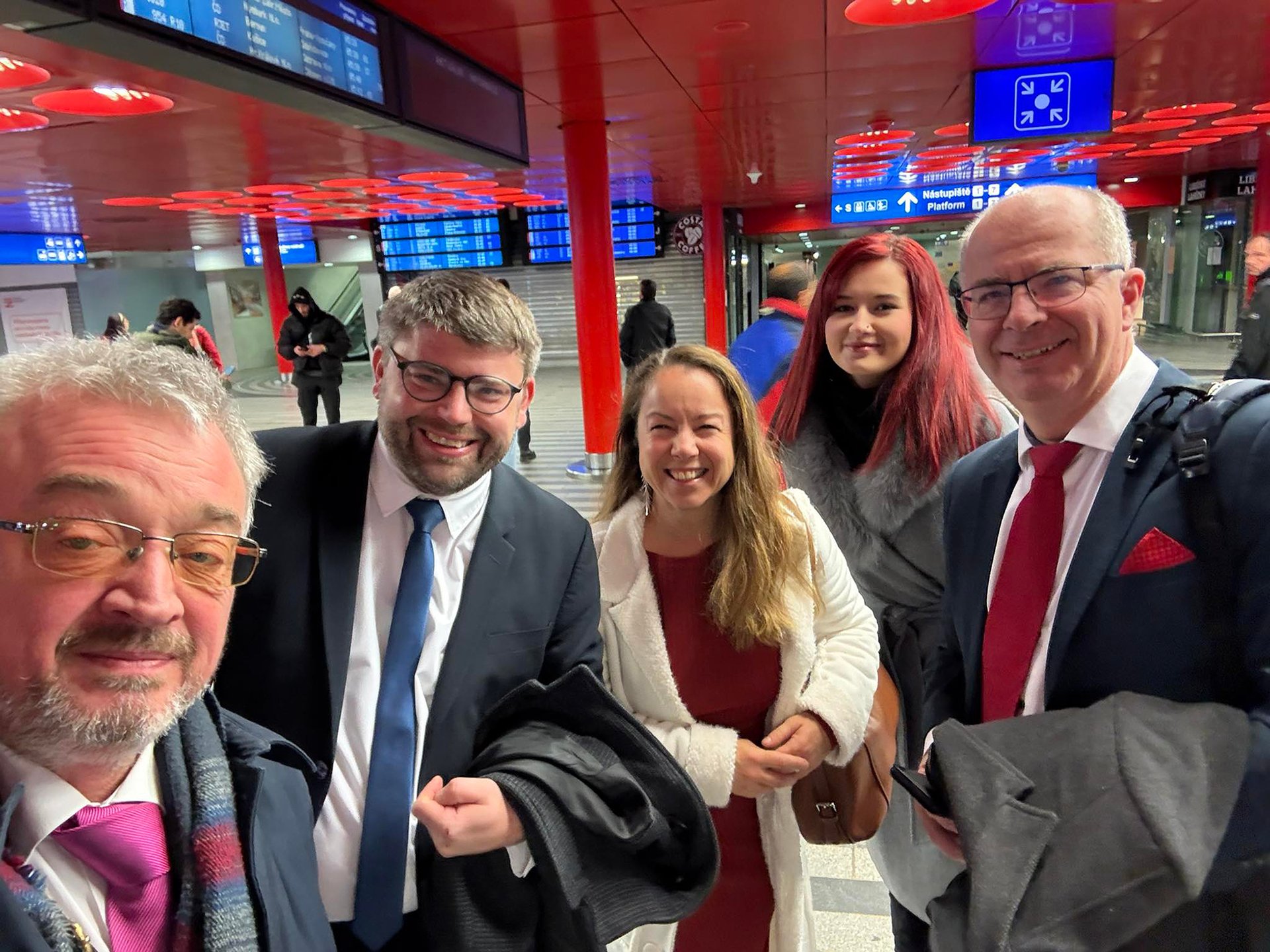Victory in Ústí nad Labem
“Hopefully you’re not going to stay in that hovel?” laughs the taxi driver, when he stops in front of an old high rise apartment building, which is now, at around midnight, the only lit building in the area. When he learns that I am, his smile slackens a bit. Everything that he said about housing on Čelakovský street on the trip over is running through his head – Gypsies driving to work, the building closing, it will be calm. It’s something that the majority of people in Ústí nad Labem are thinking about this inconspicuous building that you’re asking about. Once more, the driver looks through the windshield at the flaking mosaic of windows and balconies, darkly wishes me good night and good luck, and drives away.
On an unexpectedly spring-like winter day, muffled noise can be heard from within the building in the area in front of the lodging house. Tonight might be the last night, so what to do besides celebrate? The doors are open, the reception and ground floor hallway empty. When you go up the six-floor staircase, impressions gradually accumulate. On the first floor, moisture from a leaking pipe. On the second, a toilet that doesn’t drain, or drains other than it should. On the guest staircase, Roma teenagers, a white girl with dreads and a camping mat, and a Roma mother with a toddler in her arms pass by, one by one.


At the midpoint, there is a corner room on the fifth floor. In a smoky room sit Roma and white people, listening alternately to music from a cd and a guitar, carefree fun the priority here. Behind it, poverty is first and uncertainty is second. Such is the opening scene to one of the most interesting stories of Czech-Roma coexistence of the last 20 years, which took place last week in Ústí nad Labem.
D-Day, 7pm
The beginning of this story happened three months ago, at the other end of the city. The area about 20 blocks into the outskirts of Předlice, a neighborhood of Ústí, changed over the course of two decades into a ghetto, increasingly closed off and run down. One does not meet with respectable, European destitution here on Dostojevský and Mahenova streets, but with real poverty, with litter on the streets and in heaps between houses, where people look for something useful.
Between rows of apartment buildings, where bricks jut out to the sidewalks, stands a clearly green, although never fixed, façade. And there, where even last year between ruins there was a little pink villa with a pool, there is now a hole in the ground with a pink sprinkling of plaster. It is a fanciful scene, which shows that the ownership of houses and properties here changes like the weather. The majority, however, is between the so-called Moraváks, a rich and hated Roma clan. Business with poverty is simple –people pay eight to ten thousand crowns for rent on a small apartment of the lowest category. The social worker covers two thirds, and the remaining third is still so high that the families just get by, but they are in dire straits. They can’t go elsewhere, they won’t pay a deposit. And anyway, there isn’t anywhere to go.
In one of the Předlice houses on Beneš Lounský Street, the Červeňák family lived for a quarter century – six families, in total ten adults, 20 children. They lived like the other local poor people. For years they paid exorbitant rent, and the owner of the house left them to their own fate. No one ever did household repairs or fixed anything, overflowing trash kept overflowing, a broken window stayed broken. And the Červeňáks are not the ideal renters. Many of them don’t hold onto things for long, and they don’t think about tomorrow. They didn’t have money for the repairs, and they couldn’t manage them themselves.
Last year, the Building Office ruled that the structural stability of the house had eroded and that the family would have to leave immediately. They left most of their things there. They spent ten rough days in the gymnasium of an elementary school. The city did not know what to do right away with 30 homeless people, so Milan Mižigár, local businessman and operator of the lodging house, stepped forward. And so, the Červeňáks moved. One room with a kitchenette and a bathroom for the family, for ten or 14 thousand a month. Without anything – the things that they had left at home had been taken away in two days. No one knows what happened with Milan Mižigár; it was impossible to get in touch with him. However, he had already owed the owner of the lodging house, a company called CPI Byty, for a long time, and even with the 10,000 that he collected monthly from the Červeňáks, he paid nothing. When the company counted up the debt in November, it was at a half million. The lodging house was in bad condition and full of unknown people, so they decided to close it. D-Day is set for the last day of January. On Thursday the 31st at 7 in the evening, the women and children will have to journey to asylum houses all over Northern Bohemia, and the men will become homeless.
Squeeze the System
The first meeting takes place 20 hours before, on this same Thursday, in an empty room on the top floor of the lodging house. Yesterday evening’s lightheartedness is gone. Time is passing for everyone in the room quickly and in a bad direction. “We’ll break up onto groups – one has to take care of the children, another will watch the entryway. Some will make posters, and some will communicate with the city, the owner, and the media.” Bob, a 30-year-old man from Ústí and one of the informal leaders of the group, separates the tasks. Roughly 30 people stand here. A 40-year-old Roma woman, Iveta, whose word holds true among the residents of Předlice, listens near the door. She is also the only one who is able to speak and decide for the others. Besides that, there are only white Czechs from Ústí and Prague who arrived yesterday, and more are always coming – to help. To show that someone cares about their fate.
“We’re a disorganized network, without a hierarchy,” explains Bob later. It’s because of this that the group of people who came to support the Předlice Roma and, more simply, get control of the lodging house, is so diverse. Squatters, evangelicals, anarchists, students. Some with a political program, others with jokes. Everyone here knows someone and no one knows everyone. This network had slowly been forming over long months, when people met in Krupka, Bydžov, Varnsdorf, Šluknov, on Přednádraží Street in Ostrava. Everywhere where there were problems where the main culprit was tagging the Roma. When Miroslav Brož, a certified social worker born in Ústí, called to help, these contacts quickly went into motion.
They speak of themselves as activists, but they suspect that this isn’t completely exact. These people don’t want the “system,” – embodied for the moment by the magistrate, the social workers, and the NGOs – to improve, but to change. And if this doesn’t work, they will pressure them. They don’t want a “constructive debate,” as 25-year-old student Lukáš explains to me. That doesn’t make sense. They just want to force the institution to deal with this case, because they think that it is their responsibility. This means to help the family find housing, which will really change their situation. And not into the trap of the ghetto and the usurious rents.
For that matter, even journalists belong to the other side, to the “system,” at least unless they show that they are useful or trustworthy. “We said no media, so out,” says a serious-faced girl suddenly, and we will get to the next meeting on Friday evening.
Rebel scrupulousness and one-sidedness can irritate, but determination and enthusiasm for an unpopular thing cannot be denied to activists. “The growing hatred towards the Roma just annoys me. It annoys me and the people around me. And it’s dangerous, when people take out their own frustrations on the weakest,” shrugs Jana, who is possibly the only one who connects all the white people in the lodging house. Then more waiting to see how everything will actually turn out. Beginning on Thursday at 7pm, everyone will be in the lodging house illegally, and the police can come anytime and clear it out. “And no one needs hammering here, right?” asks the blonde man who has been watching the entryway since the morning rhetorically. The answer is clear, and still no one leaves.
A Miracle with Segedín
“This was horrible before, and now it’s even worse,” says Miroslav Brož in the middle of the cold room, the man who helps Ústí’s Roma and who especially devoted an extraordinary amount of energy, maybe all that he has, to the Červeňák family. He worked in nonprofits and government agencies, but after various disagreements he established his own civic group, and he lives for that. He earns money on part-time jobs, cares for his daughter with alternating custody, and devotes his free time to the residents of Předlice.
It is Friday morning, and to everyone’s relief, it is already clear that the police did not clear out the lodging house in the given time, and that they will not clear it out –the owner finally agreed with the activists to give the Červeňáks a few more days. They can still stay where they are, but without water, heat, or electricity. The operator already hasn’t been paying the bills for weeks. Besides determination, they now must muster pragmatism and the ability to learn by doing. It shows that the protest, the defense, the entire endeavor will lose its sense if the Červeňáks don’t get alternative housing quickly. So now, Miroslav Brož and his colleagues exert all their strength on that.
Friday goes on and a team from the lodging house drives the Červeňák women around to all the apartments that at least some of them could move to. The Červeňáks found some themselves, the city or the police offered some, and NGOs offered some. But there is nothing to choose from. One apartment is tolerable, but of course it has a view onto a courtyard full of trash. In the summer, it will be full of rats and disease. Another apartment is also decent, but the owner? A Moravák. The rent is undecided, which means that in the future it will be exorbitant. “I’ll go there over my dead body,” Iveta keeps repeating decisively. She worries that they will go back to the same networks where her family got stuck for long years in the past. And it’s worth it to her to hold out. The third apartment, where we stand, is waterlogged, freezing, and without heating. And there’s another problem. “Červeňáks here? Never. Be it them, or me,” grumbles a woman on the stairs of the last apartment building. The Červeňáks don’t have a good reputation here. Or rather – they have the worst reputation here. They come from Jakubovan, a Slovak village, which has almost the lowest place in the unwritten rankings of Roma society. And these pariahs want hardly any Roma in the building. “Be it them, or us,” repeats an older man. “Everything ruins us here, like they ruined their own building,” he adds.
Suitable apartments in Ústí are simply not to be found so quickly for the Červeňáks, and the activists can’t move from their place. The first harsh night without heat and water comes and goes. The whiff of spring is gone, and the February frost is back. As many people as possible sleep in the fewest possible rooms. The group is its own source of heat – that, and a small gas cooker. And after a tough night, an even tougher day arrives. The feverish activity doesn’t warm anyone up, and the children are starting to cough and sniffle. Everyone is waiting to see if a miracle will arrive earlier than a social worker, who would take the children from the freezing building to an institute. And that would be it. In the cold, men sit listlessly and look off into the distance, and women cry. “If they take a single child away from me, I’ll jump out the window with the rest,” says Iveta, who has been on the brink of tears for the last 24 hours, with quiet decisiveness and most likely complete seriousness. There still isn’t anywhere to go, it’s Saturday, and the searching isn’t getting any easier. They can endure at most one more day here, and then it’s over. The activists make an emergency plan – accept the Moraváks’ Mafia-like terms, and then try to avoid them as best as possible with a lawyer’s help. It is, however, a risky path, and no one wants to step out onto it and then start to deal with it.
And then, on Saturday evening, when everyone waited for the social worker’s arrival, a miracle came instead. The owner of two apartment buildings in Klíše, a good neighborhood in Ústí, calls. He found out about Předlice in the news. He has free apartments for them. For everyone. It isn’t charity, or business with poverty, but apartments of the first category with the same rents as for white people. The feeling of happy relief in the air is palpable. Miroslav Brož, who has endless official organizational paperwork for the move waiting for him in the coming days, stands above a big pot of Segedinsky goulash, and he is the only one who, amusedly, suspects that a large part of it will end up in the trash. The majority of the activists are vegan, which one side doesn’t know, and leftover food is unpalatable for Roma, which the other side doesn’t know. Nonetheless, he heaps on a plateful, and, with the others, he can say, “We won.”
Translated by Lani Seelinger.
Pokud jste v článku našli chybu, napište nám prosím na [email protected].

